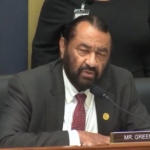The Texas Senate this week passed three bills designed to curb advertising and sales of vaping products to children. The legislative action comes amid growing concern about the unknown long-term health risks of vaping and the well-established dangers of nicotine addiction.
According to the Centers for Disease Control and Prevention, 1.6 million public school students currently use e-cigarettes, including nearly half a million middle schoolers. While the carcinogenic effects of e-cigarettes remain uncertain, health experts agree that nicotine poses serious risks, including high blood pressure, cardiac disease, and increased risk of blood clots. A single vape cartridge can contain as much nicotine as two packs of traditional cigarettes.
Senator Molly Cook (D), author of two of the bills, said e-cigarette vendors are increasingly targeting children with appealing advertisements.
“Parents across my district and throughout the state feel helpless when these smoke shops use lucrative marketing tactics to target students,” said Cook. “Especially considering that e-cigarettes are becoming increasingly popular among minors.”
Sen. Cook’s Senate Bill 1313 would prohibit smoke shops and other vendors from using images that appeal to children in any signage, logos, or posted advertisements. Violations would be classified as class B misdemeanors.
“It is very disturbing on many fronts how children are being marketed to for profit without concern for their well-being,” added bill co-author Senator Angela Paxton (R)
A second measure by Cook, Senate Bill 1316, addresses a gap in current law that restricts tobacco advertising near schools and churches but does not include e-cigarettes.
“Although Texas law prohibits the advertisement of cigarettes and tobacco products within 1,000 feet of a church or a school, e-cigarette advertisements are not included in this prohibition,” Cook said. SB 1316 would close that loophole.
The third bill, approved earlier in the week, would ban the sale of all tobacco products, including e-cigarettes, within 1,000 feet of a church or school. Senator Donna Campbell (R), who authored SB 464, said the measure is aimed at preventing easy access to harmful products.
“This bill is a proximity-based prevention to hopefully decrease health effects and decrease the ease of acquiring these products,” Campbell said.
All three bills now move to the Texas House for consideration as lawmakers continue efforts to shield Texas youth from the rising health threats associated with vaping and nicotine addiction.















